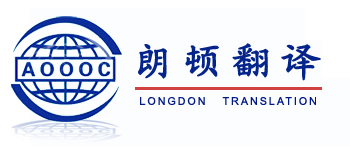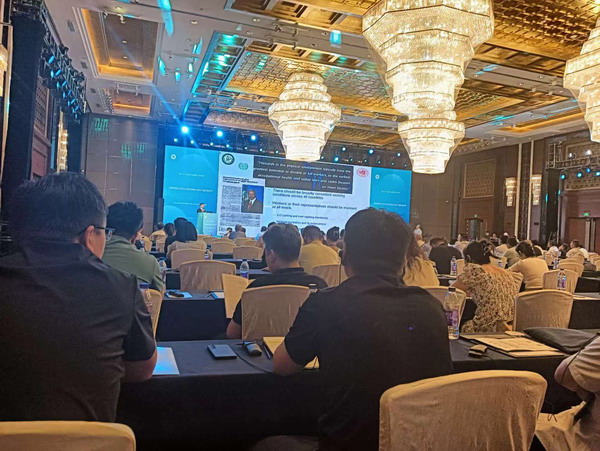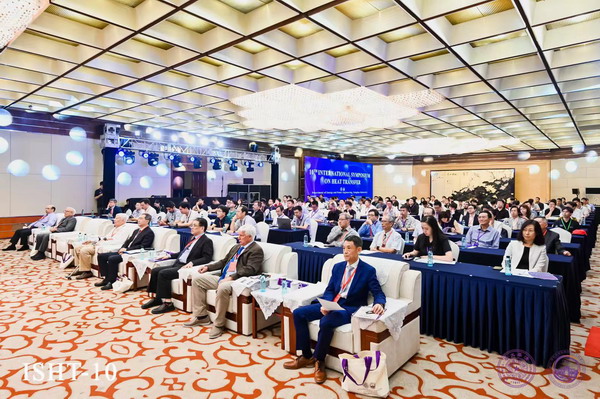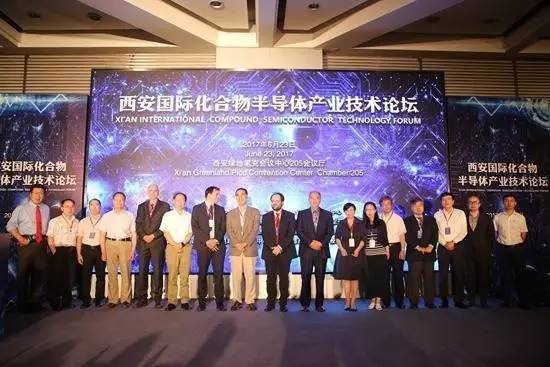Japan is ready to relaunch the Trans-Pacific Partnership minus the US in a shift of position that could bring the huge trade deal back from the dead.
╚š▒Š£╩(zh©│n)éõį┌├└ć°╚▒Ž»Ą─ŪķørŽ┬ųžåóĪČ┐ń╠½ŲĮč¾╗’░ķĻP(gu©Īn)ŽĄģf(xi©”)Č©ĪĘ(Trans-Pacific PartnershipŻ¼║åĘQTPP)Ż¼▀@ę╗┴ół÷▐D(zhu©Żn)ūāėą═¹ūī▀@éĆŠ▐┤¾Ą─┘Q(m©żo)ęūģf(xi©”)Č©Ų╦└╗ž╔·ĪŻ
According to trade officials, Tokyo is ready to proceed without much change to the existing TPP text. Previously, it had been reluctant to expose Japanese farmers to a surge of agricultural imports without offsetting ease of access to the US car market.
ō■(j©┤)┘Q(m©żo)ęū╣┘åTéāĮķĮBŻ¼¢|Š®ęč£╩(zh©│n)éõ║├═Ų▀M(j©¼n)▀@ę╗ģf(xi©”)Č©Ż¼Č°▓╗ī”¼F(xi©żn)ėąTPP╬─▒Šū„┤¾┴┐Ė³Ė─ĪŻ┤╦Ū░Ż¼╚š▒Š▓╗įĖęŌį┌Ą├▓╗ĄĮ├└ć°Ų¹▄ć╩ął÷Ė³▒Ń└¹£╩(zh©│n)╚ļĄ─ŪķørŽ┬Ż¼ūī╚š▒Š▐r(n©«ng)├±╩▄ĄĮ▐r(n©«ng)«a(ch©Żn)ŲĘ▀M(j©¼n)┐┌╝żį÷Ą─ė░ĒæĪŻ
The decision could be a huge boon to non-US food exporters such as Australia and could shift the dynamics for trade deals in Asia by offering an alternative to the China-centred Regional Comprehensive Economic Partnership.
▀@éĆøQČ©ī”░─┤¾└¹üåĄ╚ĘŪ├└ć°╩│ŲĘ│÷┐┌ć°üĒšf┐╔─▄╩Ūę╗éĆŠ▐┤¾└¹║├Ż¼▓ó┐╔─▄Ė─ūāüåų▐┘Q(m©żo)ęūģf(xi©”)Č©Ą─Ė±ŠųŻ¼╠ß╣®ę╗éĆ╠µ┤·ęįųąć°×ķųąą─Ą─ģ^(q©▒)ė“╚½├µĮø(j©®ng)Ø·(j©¼)╗’░ķĻP(gu©Īn)ŽĄģf(xi©”)Č©(Regional Comprehensive Economic PartnershipŻ¼║åĘQRCEP)Ą─▀xō±ĪŻ
Ī░We will start talks on an 11-member TPP, minus the US, at the [Asia-Pacific Economic Cooperation] meeting in May,Ī▒ said Taro Aso, JapanĪ»s finance minister, at a recent event in New York. Steven Ciobo, AustraliaĪ»s trade minister, visited Japan a week ago to discuss a revived TPP.
Ī░į┌ø]ėą├└ć°Ą─ŪķørŽ┬Ż¼╬ęéāīóį┌5į┬Ę▌Ą─Ż©üå╠½Įø(j©®ng)║ŽĮM┐ŚŻ®Ģ■ūh╔ŽŻ¼Š═11éĆ│╔åTć°Ą─TPPķ_╩╝šä┼ąŻ¼Ī▒╚š▒Šžöäš(w©┤)┤¾│╝┬ķ╔·╠½└╔(Taro Aso)╚šŪ░į┌╝~╝s┼eąąĄ─ę╗éĆ╗Ņäė╔Ž▒Ē╩ŠĪŻ░─┤¾└¹üå┘Q(m©żo)ęū▓┐ķL╩ĘĄ┘╬─?å╠▓®(Steven Ciobo)ę╗ų▄Ū░įLå¢┴╦╚š▒ŠŻ¼ėæšōųžåóTPP╩┬ę╦ĪŻ
One of Donald TrumpĪ»s first acts as US president was to withdraw from the unratified TPP deal. That left Japan as the largest remaining economy. The other 10 members are Australia, Brunei, Canada, Chile, Malaysia, Mexico, New Zealand, Peru, Singapore and Vietnam.
╠Ų╝{Ą┬?╠ž└╩Ųš(Donald Trump)Š═╚╬├└ć°┐éĮy(t©»ng)║¾Ą─╩ū┼·ąąäėų«ę╗Ż¼Š═╩Ū═╦│÷╔ą╬┤½@Ą├ć°Ģ■┼·£╩(zh©│n)Ą─TPPģf(xi©”)Č©ĪŻ▀@╩╣Ą├╚š▒Š│╔×ķįōģf(xi©”)Č©ųąĄ─ūŅ┤¾Įø(j©®ng)Ø·(j©¼)¾wĪŻŲõ╦¹10éĆ│╔åTć°╩Ū░─┤¾└¹üåĪó╬─╚RĪó╝ė─├┤¾ĪóųŪ└¹Īó±RüĒ╬„üåĪó─½╬„ĖńĪóą┬╬„╠mĪó├ž¶öĪóą┬╝ėŲ┬║═įĮ─ŽĪŻ
Australia wanted to go ahead regardless, but Shinzo Abe, JapanĪ»s prime minister, said TPP was Ī░meaninglessĪ▒ without the US, reflecting the loss of a big market for JapanĪ»s industrial products.
░─┤¾└¹üåįńŠ═ŽŻ═¹└^└m(x©┤)═Ų▀M(j©¼n)Ż¼Ą½╚š▒Š╩ūŽÓ░▓▒ČĢx╚²(Shinzo Abe)«ö(d©Īng)Ģr▒Ē╩ŠŻ¼TPPį┌ø]ėą├└ć°Ą─ŪķørŽ┬╩ŪĪ░¤oęŌ┴xĄ─Ī▒Ż¼┤╦čįĘ┤ė││÷╚š▒ŠĄ─╣żśI(y©©)«a(ch©Żn)ŲĘīó╩¦╚źę╗éĆ┤¾╩ął÷ĪŻ
However, several factors have caused Tokyo to rethink. First, says Kenichi Kawasaki, senior fellow at the National Graduate Institute for Policy Studies in Tokyo, is the realisation that TPP offers economic benefits even without the US Ī¬ and Japan needs them.
▓╗▀^Ż¼ėąÄūéĆę“╦ž┤┘╩╣¢|Š®ĘĮ├µųžą┬╦╝┐╝ĪŻō■(j©┤)¢|Š®Ą─š■▓▀蹊┐┤¾īW(xu©”)į║┤¾īW(xu©”)(GRIPS)Ė▀╝ē蹊┐åT┤©Ųķčąę╗(Kenichi Kawasaki)ĮķĮBŻ¼╩ūŽ╚╩Ū╚šĘĮęŌūRĄĮŻ¼╝┤╩╣ø]ėą├└ć°Ż¼TPPę▓─▄ĦüĒĮø(j©®ng)Ø·(j©¼)ą¦ęµĪ¬Ī¬Č°╚š▒ŠąĶę¬▀@ą®ą¦ęµĪŻ
Ī░We cannot expect economic revitalisation without any free-trade agreements,Ī▒ says Mr Kawasaki. Most of JapanĪ»s putative gains from tariff reduction were due to the US, he says, but those from non-tariff barriers mainly relate to Asian trading partners.
Ī░╚¶ø]ėą╚╬║╬ūįė╔┘Q(m©żo)ęūģf(xi©”)Č©Ż¼╬ęéāŠ═▓╗─▄ųĖ═¹ųžš±Įø(j©®ng)Ø·(j©¼)Ż¼Ī▒┤©ŲķšfĪŻ╦¹▒Ē╩ŠŻ¼ī”╚š▒ŠüĒšfŻ¼üĒūįĻP(gu©Īn)ČÉ£p├ŌĄ─┤¾▓┐Ęų═ŲČ©╩šęµ╔µ╝░├└ć°Ż¼Ą½╩ŪüĒūįĘŪĻP(gu©Īn)ČÉ▒┌ēŠŽ¹│²Ą─═ŲČ©╩šęµų„ę¬╔µ╝░üåų▐┘Q(m©żo)ęū╗’░ķĪŻ

There is also a geopolitical aspect: TPP will cement JapanĪ»s relations with important regional partners such as Australia and Vietnam. Furthermore, it will keep alive TPPĪ»s tough rules in areas such as intellectual property and government procurement. This will create pressure for higher standards in the RCEP deal, which covers a different set of Asian countries including Japan, China, Indonesia and the Philippines.
▀Ćėąę╗éĆĄžŠēš■ų╬īė├µŻ║TPPīóņ¢╣╠╚š▒Š┼c░─┤¾└¹üå║═įĮ─ŽĄ╚ųžę¬Ąžģ^(q©▒)║Žū„╗’░ķĄ─ĻP(gu©Īn)ŽĄĪŻČ°Ūę┤╦┼eīó▒ŻūĪTPPį┌ų¬ūR«a(ch©Żn)ÖÓ(qu©ón)║═š■Ė«▓╔┘ÅĄ╚ŅI(l©½ng)ė“┤_┴óĄ─ć└(y©ón)Ė±ęÄ(gu©®)ätĪŻ▀@īóą╬│╔ē║┴”Ż¼ę¬Ū¾RCEPģf(xi©”)Č©ę▓▀_(d©ó)ĄĮĖ³Ė▀ś╦(bi©Īo)£╩(zh©│n)Ż¼║¾š▀Ė▓╔wę╗ĮM▓╗═¼Ą─üåų▐ć°╝ęŻ¼░³└©╚š▒ŠĪóųąć°ĪóėĪČ╚─ß╬„üå║═ĘŲ┬╔┘eĪŻ
When Mike Pence, the US vice-president, visited Tokyo last week he declared: Ī░The TPP is a thing of the past for the United States of America.Ī▒ Despite that, Tokyo remains keen to lure the US back.
├└ć°Ė▒┐éĮy(t©»ng)▀~┐╦?┼Ē╦╣(Mike Pence)╔Žų▄įL墢|Š®Ģrą¹ĖµŻ║Ī░TPPī”├└ć°üĒšfęčĮø(j©®ng)╩Ū▀^╚źĄ─╩┬Ūķ┴╦ĪŻĪ▒▒M╣▄╚ń┤╦Ż¼¢|Š®ĘĮ├µę└╚╗¤ßųįė┌░č├└ć°└Ł╗žüĒĪŻ
Ī░The US may lose from TPP11 [a TPP without the US] because of trade diversion effects,Ī▒ said Mr Kawasaki. Australian beef and Chilean wine, for example, will be better placed in the Japanese market than their US competitors.
Ī░ė╔ė┌┘Q(m©żo)ęū▐D(zhu©Żn)ęŲĄ─ė░ĒæŻ¼├└ć°┐╔─▄Ģ■ę“TPP11Ż©├└ć°╚▒Ž»Ą─TPPŻ®│į╠ØŻ¼Ī▒┤©Ųķ▒Ē╩ŠĪŻ└²╚ńŻ¼░─┤¾└¹üå┼Ż╚Ō║═ųŪ└¹ŲŽ╠čŠŲį┌╚š▒Š╩ął÷┐╔─▄▒╚├└ć°ĖéĀÄī”╩ų╠Äė┌Ė³ėą└¹Ąž╬╗ĪŻ




